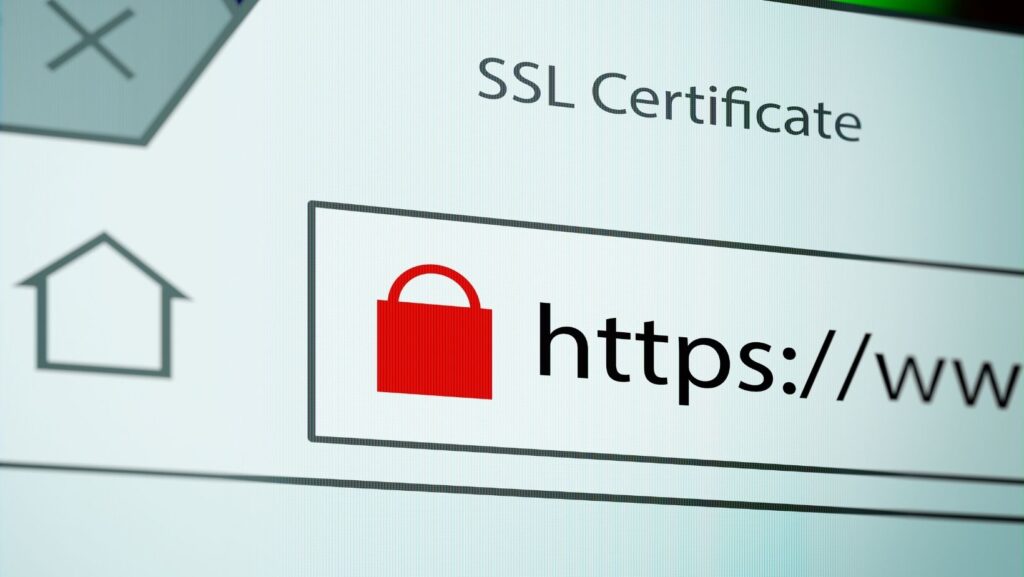SSL certificates are the go-to thing for businesses to show their users how trustworthy their websites are. However, this is not the only use case. Installation of an SSL certificate is not just another security badge; it has functional value for your website.
Take an example of the 2019 man-in-the-middle attack on a Chinese venture capital firm that incurred losses worth $1 million. Attackers used similar domains to the ones used by the firm’s employees to gain access to an email exchange between the Chinese and Israeli start-ups.
In such use cases, domain-validated SSL certificates from a reputed certificate authority (CA) could have made all the difference. Similarly, a wildcard SSL certificate is best for the use case of securing multiple subdomains. However, it’s not always so bright as day for every company or entrepreneur to decide which SSL certificate to buy for their business.
So, here we are with a comprehensive take on five different SSL certificates and specific use cases you need them. Let’s first discuss the SSL certificate briefly.
What is an SSL Certificate?
Secure Socket Layer (SSL) is an encryption-based approach to secure communication between users’ devices and browsers through which they access the website. In other words, an SSL certificate acts as an anonymizer that hides critical information from attackers.
Take an example of a user trying to access a website without an SSL certificate. The information is not encrypted and is easily accessible to any hacker.
At the same time, with an SSL certificate, the password visible to hackers will be anonymous, protecting your data. The HTTPS badge is, also known as the “Hypertext Transfer Protocol Secure,” is also essential for higher Google rankings.
Google’s guidelines for higher search engine rankings emphasize HTTPS-based security. So, an SSL certificate is not just about getting a secure sign on your website; it helps protect against MITM attacks, helps get higher search engine rankings, and enables trust among users.
Some of the key benefits of an SSL certificate are,
- Protects your website from hackers and cybercriminals
- Encrypts data so that no one but the intended recipient can read it
- It helps prevent eavesdropping on sensitive information such as credit card numbers or passwords
- Ensures secure data transactions between your visitors and your website’s server
- Enables your website to have the SEO advantage and rank higher
Now that we know what an SSL certificate and its benefits are, let’s discuss how it works.
How Does SSL Work?
SSL works with two different types of encryptions fused for enhanced security. There are two types of encryptions that help in various security products like SSL certificates.

- Symmetric encryptions-A type of encryption where the same key is used to encode and decode the information. Symmetric encryptions use the Advanced Encryption Standard (AES) algorithms for encryptions.
- Asymmetric encryptions-This type of encryption has different security keys for encoding and decoding the data. It uses Rivest Shamir Adleman or RSA algorithm to mathematical link both public and private keys. A public key is used to encode the data, while a private key is used to decode the data.
SSL certificate uses both asymmetric and symmetric encryptions for data integrity. With asymmetric encryption, a secure session is established between client and server. Further, an SSL certificate uses symmetric encryption to anonymize data exchange within the secure session.
Now you know what an SSL certificate is and how it works, let’s discuss different use cases for a certificate.
1.Domain Validated Certificates
A domain-validated certificate is one of the most popular SSL options because of its simplicity. However, the validation by any certificate authority (CA) is based on one specific factor-whether a user has rights to use the domain or not.
It does not require extensive information from a user like company details, identity information, or others, making it the best choice for bloggers. In addition, adomain validated SSL certificate takes less time than others for issuance due to the short vetting process.
A DV SSL certificate is a perfect choice for personal bloggers, content creators, and brochure websites for use cases. If you don’t have any experience in the certificate process, here are three ways in which you can validate your domain for DV SSL, aka domain, validated certificate issuance.
- A certificate authority (CA) sends an email to the address on the WHO.IS record, and you will have to replay back for confirmation
- CA will send a text file for domain validation that you have to upload on the website’s root directory. So, CA can scan the site for validation.
- CA will send a hash which you will have to add to the CNAME DNS record. So, the DNS record is scanned by CA for validation.
2.Organization Validated SSL Certificates
Unlike a domain validated certificate, organization validated (OV) certificates are issued after proper vetting of company details. Therefore, it is essential to understand that you must furnish information like country, state, city, and others apart from the domain.
Such SSL certificates are essential for eCommerce websites where users trust organizational information and branding. It also helps companies with a seal of trust through organizational data validation. For OV SSL certificates, the best use case is enterprises, eCommerce sites, and brands looking to build trust among customers.
3.Extended Validation SSL Certificates
When a DV SSL certificate helps with domain validation and OV SSL with organizational detail verifications, EV SSL takes the vetting process further. With extended validation, each website owner will have to go through a vetting process based on a specific set of CA/Browser forum guidelines.
These certificates are predominantly used by banking and financial institutions where sensitive information is exchanged and massive transactions.
4.Wildcard SSL Certificates
If you have a website with several subdomains and want to add a certificate for each security, it can be costly. Fortunately for you, there are wildcard SSL certificates that you can use to secure multiple subdomains. The best part about wildcard SSL certificates is that you don’t have to install individual certificates for each subdomain.
This certificate is beneficial for large-scale companies and enterprises with several subdomains that they need to secure.
5.Multi-domain SSL Certificates
A multi-domain SSL certificate helps you secure multiple domains with one certificate; It uses the Subject Alternative Name (SAN) extension that allows users to add various hostnames to a single SSL certificate.

One of the most common use cases of a multi-domain SSL certificate is to secure different domains under their belt. For example, a brand with abc.com as the primary domain and other domains like abc.org, abc.net, abc.io, etc., can be secured through a multi-domain SSL certificate.
Conclusion
SSL certificates are essential for securing the security of your website’s traffic. This article covered different use cases for SSL certificates and provided a comprehensive guide on the different types of SSL certificates.
If you are looking for a secure site, be sure to check out our list of 5 use case-based SSL certificates, and for any further information on how to buy an SSL certificate feel free to comment below!














